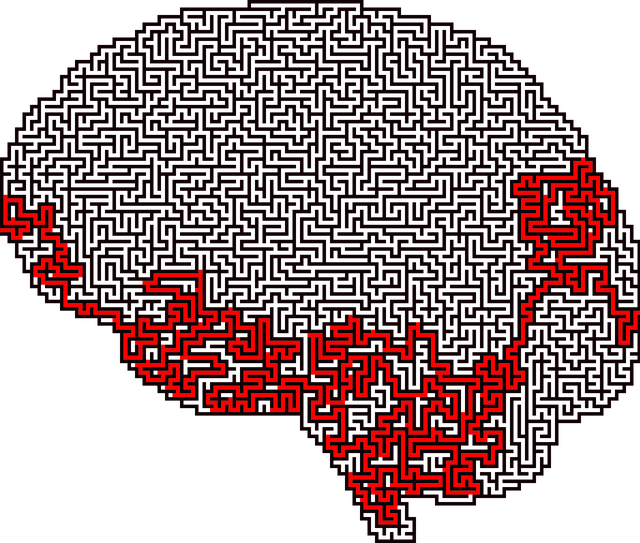Broomfield Trauma Therapy offers comprehensive mental health care, utilizing diagnostic tools like DSM-5 to guide tailored treatments. Their holistic approach combines trauma support, conflict resolution, and positive thinking promotion. With guidance, individuals navigate recovery paths, learn self-care practices (e.g., Mental Wellness Journaling), and build supportive networks for enhanced coping. Broomfield Trauma Therapy emphasizes self-care, risk management, and stigma reduction to empower individuals in their mental health journeys.
Mental illness diagnosis and treatment navigation can be a complex, daunting journey. This comprehensive guide aims to demystify the process, offering insights into understanding mental health diagnoses and navigating treatment options effectively. We explore the transformative power of Broomfield Trauma Therapy, emphasize building supportive networks, and provide essential self-care strategies for empowering healing. By the end, readers will have a clearer path towards wellness.
- Understanding Mental Health Diagnoses: Unveiling the Process
- Navigating Treatment Options: A Comprehensive Guide
- The Role of Broomfield Trauma Therapy in Recovery
- Building a Supportive Network for Effective Healing
- Self-Care Strategies: Empowering Your Journey Towards Wellness
Understanding Mental Health Diagnoses: Unveiling the Process

Mental health diagnoses are a crucial step in navigating an individual’s path to healing and recovery. The process involves a comprehensive evaluation by qualified professionals who employ various assessment tools and criteria from established diagnostic manuals, such as the DSM-5 (Diagnostic and Statistical Manual of Mental Disorders). This careful examination delves into symptoms, their severity, duration, and impact on daily functioning.
At Broomfield Trauma Therapy, we understand that seeking a diagnosis can be a challenging yet essential journey towards healing. Our team of experienced therapists guides clients through every step, offering trauma support services tailored to their unique needs. We also equip individuals with conflict resolution techniques and promote positive thinking as integral parts of the therapeutic process, ensuring a holistic approach to mental health care.
Navigating Treatment Options: A Comprehensive Guide

Navigating treatment options for mental illness can feel like a daunting task, but with the right guidance, it becomes a journey towards recovery and improved mental wellness. A comprehensive guide is essential to help individuals understand their diagnosis, explore available treatments, and make informed decisions about their care. This process begins by gathering accurate information about various therapeutic approaches tailored to specific needs. For instance, Broomfield Trauma Therapy offers specialized services for those dealing with traumatic events, providing a safe space to process emotions and heal.
Additionally, incorporating self-care practices like Mental Wellness Journaling Exercise Guidance can empower individuals to track their progress, identify triggers, and develop healthy coping mechanisms. Community outreach programs play a vital role, too, by connecting people with support networks and resources, fostering a sense of belonging and encouraging active participation in one’s recovery. Conflict resolution techniques are also valuable tools, helping individuals manage relationships and navigate challenging situations more effectively.
The Role of Broomfield Trauma Therapy in Recovery

Broomfield Trauma Therapy plays a pivotal role in the recovery journey for individuals navigating mental illness. This therapeutic approach focuses on addressing deep-seated trauma, often a root cause of various mental health conditions. By fostering self-awareness exercises that delve into past experiences, it empowers clients to understand and process traumatic memories. Through this process, individuals can begin to untangle the complex connections between trauma and current mental health challenges.
The effectiveness of Broomfield Trauma Therapy lies in its holistic nature, considering not just the symptoms but the underlying factors contributing to them. This method also underscores the importance of Healthcare Provider Cultural Competency Training, ensuring that therapists are equipped to offer culturally sensitive care. Additionally, by integrating Mental Illness Stigma Reduction Efforts into treatment plans, this therapy promotes a supportive environment, encouraging clients to share their stories openly and embrace their recovery paths without fear of judgment.
Building a Supportive Network for Effective Healing

Building a supportive network is a cornerstone for effective mental health healing. At Broomfield Trauma Therapy, we emphasize the importance of creating a safe and non-judgmental space where individuals can openly discuss their experiences and connect with like-minded people. This network can include family, friends, support groups, or even online communities that foster a sense of belonging. Each member plays a crucial role in providing encouragement, offering practical assistance, and helping to navigate the often complex landscape of mental health care.
By fostering strong connections within this network, individuals can enhance their coping mechanisms, improve self-esteem, and gain valuable insights from shared experiences. This collective support acts as a buffer against the challenges of mental illness, promoting resilience and enabling individuals to actively participate in their healing journey. Moreover, it encourages consistent accountability, ensuring that help is always accessible when needed, be it for anxiety relief or managing other aspects of mental health.
Self-Care Strategies: Empowering Your Journey Towards Wellness

In navigating the complexities of mental illness diagnosis and treatment, self-care strategies are essential tools for empowering your journey towards wellness. Engaging in consistent self-care practices allows individuals to cultivate inner strength and resilience, fostering a sense of control and well-being amidst challenges. Techniques such as mindfulness meditation, regular physical exercise, and maintaining a balanced diet can significantly contribute to mental health stability. Additionally, seeking support from peers, therapy groups, or trusted professionals provides a safe space for sharing experiences and learning coping mechanisms.
Broomfield Trauma Therapy emphasizes the importance of self-care not just as a luxury but as a necessity. They offer guidance on developing effective risk management plans, tailored to individual needs. By integrating these strategies into daily routines, individuals can mitigate stress, reduce symptoms associated with mental illness, and foster personal growth. Moreover, mental illness stigma reduction efforts play a pivotal role in encouraging open conversations about mental health, fostering understanding, and promoting early intervention—all crucial aspects of successful treatment navigation.
Mental health journeys are highly personal, and proper navigation is key to recovery. By understanding diagnoses, exploring treatment options like Broomfield Trauma Therapy, building support networks, and adopting self-care strategies, individuals can take control of their wellness. This comprehensive guide empowers folks to navigate their mental health care effectively, fostering a brighter path towards healing and improved quality of life.










